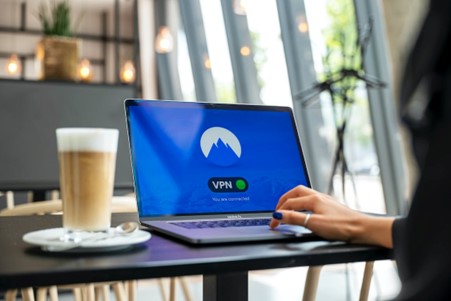The rise of VPN alternatives and why every business in Wales should consider one.

For all the obvious benefits that the internet has delivered to business, it has also created a number of dangers. Foremost amongst these is cyber crime – the malicious action of others that either uses a computer, a computer network or a networked device.
Businesses of all kinds can fall prey to this, something that is affecting significant numbers each year. According to official UK Government statistics, almost 40% of all businesses suffered some kind of attack between 2020 and 2021 with medium to larger-sized businesses bearing the brunt.
It’s also widespread across many sectors from the obvious ones like financial services to more surprising victims such as construction companies.
The one piece of good news is that the figures released in March 2021 did show a slight fall in attacks, possibly due to businesses starting to take the threat more seriously and instigating cyber security measures.
However, cyber criminals are nothing if not determined. So this may well be the lull before the storm as they work out more ways to side-step the security measures that are being put in place.
The dangers of cyber crime

Cyber crime comes in many forms and has numerous motivations behind it. Some hackers are simply determined to disrupt. Others have monetary gain as an overall objective. But, whatever they are seeking, it can have very serious consequences for the victim.
The first is financial. It’s been estimated that overall in the UK the cost to business is around £27 billion a year. This figure is made up of various elements including ransoms paid to hackers who have disabled whole systems as well as the costs of lost business.
But, in addition to the financial hit that businesses face, there’s the reputational one too. Not only are clients impacted when a business suffers an attack, the bad publicity that it generates can be devastating. In fact, it’s not uncommon for a serious attack to spell the end of a company’s life.
So the importance of having a robust system of protection in place can’t be overstated.
VPNs and their alternatives
An additional threat to businesses has been the changing nature of working practices. More and more people are now working remotely, at least for a few days in the week.
This means that they need to keep in touch online. But as they are away from the security of the businesses’ own networks this introduces an extra element of vulnerability.
One solution has always been to use a Virtual Private Network, or VPN. This disguises the identity of the person who is using it to go online and makes it impossible to track the actual IP address of the user. This also makes the data being transmitted or received online invisible to anyone who doesn’t have the encryption key to unlock it.
But, for all of their advantages, VPNs do have a number of vulnerabilities. For example they are powerless to prevent tracking cookies being stored on a PC or mobile device. And, more of a weakness than a vulnerability, they can be considerably slower than normal networks.
So, in the arms race to stay one step ahead of the hackers while also offering users the best online service, the VPN alternative for business has been staring to gain quite a lot of traction in recent times.

Perhaps the most commonly used of theses is Zero Trust Network Access, or ZTNA for short. The principle behind this is explained in the name. Without multiple methods of authentication it will not allow any individual access to a network. When it does, it only allows access to certain parts of the network, according to the status of the user.
So, in the unlikely event that a hacker did gain access, they would be severely limited as to what they could do. When used alongside network monitoring tools, ZTNAs can also raise alerts whenever any suspicious activity is detected.
Another alternative to the traditional VPN is the Software Defined Perimeter. This is similar to the silo effect of ZTNAs that only allows users to access networks or resources defined by their identity.
Because encryption is another key element of maintaining online security, some VPN alternatives focus on using multiple protocols such as IPSec and WireGuard at the same time.
The monitoring of devices and network usage can also be critical in maintaining online security. So these methods are increasingly accompanied by SIEMs that collect usage information from a wide range of sources and identify anything that’s out of the ordinary.
Appropriate action can then be taken to prevent the issue from becoming more serious.
Why choose an alternative?
There is no denying the fact that any business should have as much cyber security in place as possible. Fortunately, these new alternatives to the standard VPN are bringing this within the reach of most.
Combined with a strong cyber security policy this represents what should be a near-impenetrable line of defence against hackers and others who mean your business harm.
This is especially relevant now that more and more operations are becoming cloud-based with all the extra vulnerabilities that this potentially raises.
The secret is to find a provider who can offer genuine state-of-the-art and proven solutions. Then business owners of all kinds can rest easy that they are getting the protection that they really do need and deserve.





